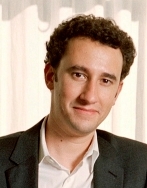Want smarter insights in your inbox? Sign up for our weekly newsletters to get only what matters to enterprise AI, data, and security leaders. Subscribe Now
 No, not that kind of bubble. The bubble we’re living in is actually much more dangerous than the classic tech bubbles that inevitably come and go, because this particular bubble may well prevent American entrepreneurs from playing a leading role in shaping the future.
No, not that kind of bubble. The bubble we’re living in is actually much more dangerous than the classic tech bubbles that inevitably come and go, because this particular bubble may well prevent American entrepreneurs from playing a leading role in shaping the future.
A classic tech bubble inflates expectations of what’s possible — and ultimately dashes the hopes of many investors and entrepreneurs. But it also leaves new technologies and a handful of great companies in its wake. Hence the t-shirt that one of my investors pointed me to: “Please God Just One More Bubble.” We are probably in one of these bubbles now. But this isn’t the bubble I’m worried about.
The bubble I’m worried about is much more dangerous precisely because it constrains our thinking about what’s possible. The bubble I’m worried about is a 20th Century Bubble, which imprisons the minds of too many American entrepreneurs.
Arguably, the defining economic event of the 20th century was the rise of the American middle class. Fortunes were made by entrepreneurs who built companies to serve this American middle class. Car companies, energy companies, electronics companies, pharmaceutical companies, financial services companies… Indeed, much of the Fortune 500 grew up by serving America’s growing middle class.
Today, most American entrepreneurs continue to be focused on building businesses that are fundamentally about serving the American middle class (daily deal entrepreneurs, you know who you are).
That’s fine, except for one thing: the defining economic event of the 21st century is likely to be the rise of the global middle class.
Who’s going to shape this next century (or, as President Obama might put it, “win the future”)? Sadly, at this point, I wouldn’t bet on American entrepreneurs, most of whom are living in a 20th Century Bubble. No, I’d bet on entrepreneurs in emerging markets, the folks who deeply understand the growing global middle class — because they’re a part of it.
But American entrepreneurs do have a shot — if we have the courage to learn about markets half-way around the world. Only then will we be able to create products and services that address the needs of the global middle class. Or products and services that address the needs of other companies that are in turn serving the global middle class.
Will we be at a disadvantage, because we are not truly of these markets? Yes. On the other hand, we’ve had a century to accumulate knowledge about how to serve those who hunger for a better quality of life — and knowledge about how to serve companies that are in turn serving those who hunger for a better quality of life. Why can’t we take this knowledge and apply it in new markets?
We can.
If you need proof, check out a New York start-up called Peek that is is kicking some serious smart-phone butt in emerging markets. Or check out a recent winner of the MIT $100K competition, Sanergy, that is enabling a network of franchisees to provide consumers in emerging markets with sanitation systems (read: toilets) that convert waste into energy.
Sadly, for every Peek or Sanergy, there are hundreds of start-ups that are the result of 20th Century Bubble thinking. And that’s a shame. Because the future will likely belong to those who aren’t in the bubble.
And the stakes are high. In fact, I would argue that what’s at stake is that other middle class — the American middle class. If we can’t build new companies that capitalize on the defining economic event of the 21st century — the rise of the global middle class — how can we possibly create enough jobs to sustain the American middle class?
Here’s hoping that the next wave of entrepreneurs has the courage to look to the future. Here’s hoping that the next wave of entrepreneurs has the courage to look beyond our borders. Here’s hoping that the 20th Century Bubble bursts soon.
 Josh Green (@joshuabgreen) is the co-founder and CEO of Panjiva (@panjiva), an intelligence platform for global trade professionals that got its start by helping companies serve the American middle class.
Josh Green (@joshuabgreen) is the co-founder and CEO of Panjiva (@panjiva), an intelligence platform for global trade professionals that got its start by helping companies serve the American middle class.

